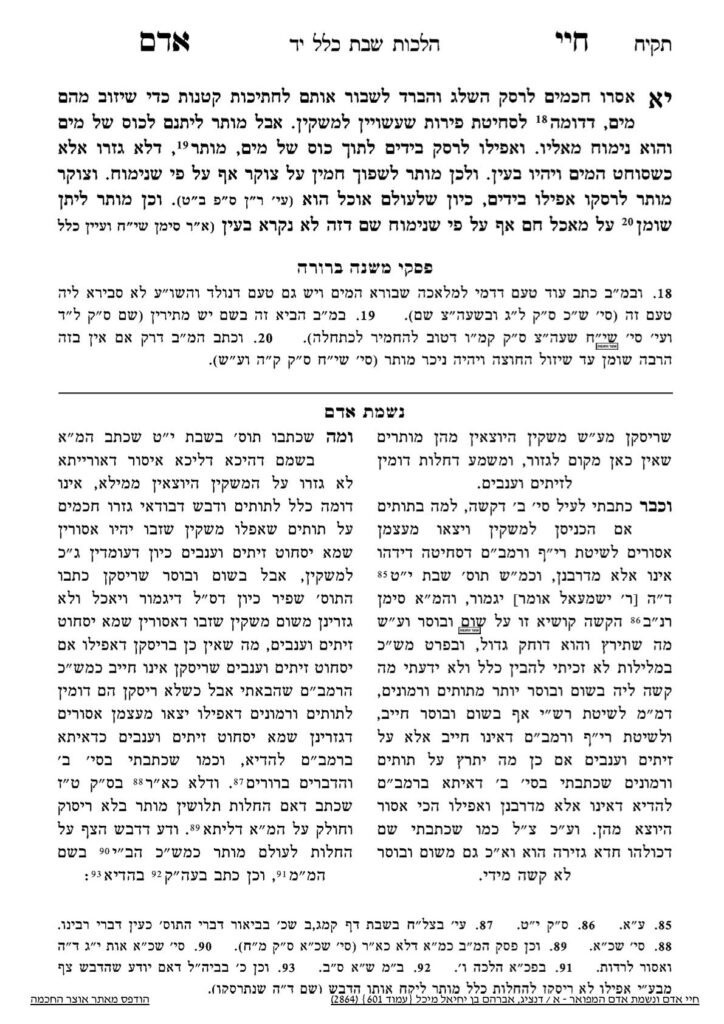We are beginning siman 11, and will begin with an introduction. The Gemara says that one cannot crush snow in order to thaw it and turn it into water. The Shulchan Aruch brings this as halacha lemaaseh in siman 320. We have to understand why it is assur, and the possible reasons will result in practical differences.
There are three possible reasons given in the rishonim:
- It approximates the process of mefareik. Although it is not mefareik deoraysa, because there is no husk from which the “food” is being separated, the crushing the solid and ending up with a liquid approximates the process of mefareik, breaking something apart to extract its liquid. Thus, the Rambam understands it is assur as a gezeira that one may come to squeeze fruits.
- Rashi understands that the issur has nothing to do with mefareik. We know that the primary reason behind the issurei melacha is the creation of something which did not previously exist. Thus, creating water on Shabbos looks as though one has created something, and he holds it is assur miderabanan due to the appearance of the creation of the water. This is known as the issur of molid.
- The third explanation is that although there is nothing inherently wrong with crushing the ice, one cannot use the liquid produced due to nolad, so by default it is inappropriate to crush it.
- Crushing ice to create water is assur miderabanan, either because:
- It approximates mefareik;
- It is the issur of molid, the process of creating something
- It is the issur of muktzah due to nolad, due to the fact that the water didnot exist before shabbos, so by definition it is not considered prepared for use on shabbos from before Shabbos.



